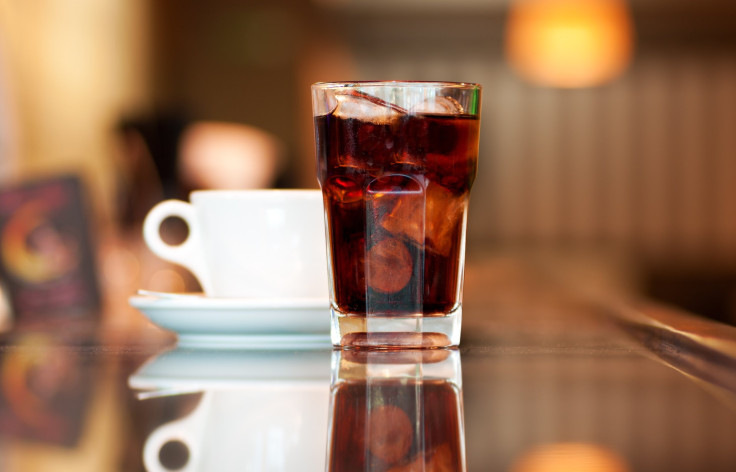Drinking One Less Sugary Drink A Day May Lower Type 2 Diabetes Risk

Faced with an avalanche of health tips, it can be hard to pin down just how worthwhile any one piece of advice really is. Does coffee stave off heart attacks, or not do anything at all? Will eggs doom us to an early death? Or can we become immortal via daily oral applications of red wine? Nutritional knowledge is ever-expanding and refining.
But there’s at least one relatively constant diet recommendation we should take to heart: the less sugar we take in, the better off our health will be. A study published Thursday in the journal Diabetologia validated this advice, as it found that replacing even one serving of a sugary drink a day with water or unsweetened tea or coffee can reduce our risk of developing type 2 diabetes by 14 to 25 percent.
Using data from the EPIC-Norfolk study, a population-level analysis that first began in 1993, the team was able to examine the dietary habits of over 25,000 people living in Norfolk, England across 11 years, periodically checking in on them and reevaluating their diets via 7-day food diaries. By the end, 847 people came down with type 2 diabetes.
Ultimately, the researchers found that more a total day’s worth of calories was ingested through sugary drinks (including soft drinks, sweetened milk beverages like lattes, and fruit juices), the greater the risk of diabetes. “Each five percent higher intake was associated with an 18 percent higher incidence of type 2 diabetes,” the authors wrote.
The detailed cataloging of the participants’ diets allowed the authors to make more specific conclusions about the effects of certain sugary drinks, finding a link between sweetened milk beverages to type 2 diabetes that hadn’t been reported before. Fruit juice and sweetened tea or coffee consumption wasn’t connected to an uptake in diabetes, though they noted that juice drinkers tended to have better diets and be wealthier. It also allowed them to predict how beneficial small changes in diet could be.
Unfortunately for the diet soda lovers, bad news abound. “We also report that replacing soft drinks and sweetened-milk beverages with artificially sweetened beverages did not reduce type 2 diabetes incidence, but drinking water or unsweetened tea or coffee as alternatives to soft drinks and sweetened-milk beverages lowered the incidence of type 2 diabetes significantly,” they wrote.
Though these large studies carry their own drawbacks, namely that they rely on self-reporting, the link between diabetes and sugar consumption has long been established. In that sense, this latest report should serve as another brick in the mortar on how best to tackle a growing epidemic. "Our new findings on the potential to reduce the burden of diabetes by reducing the percentage of energy consumed from sweet beverages add further important evidence to the recommendation from the World Health Organization to limit the intake of free sugars in our diet," said study author Dr. Nita Forouhi, of the UK Medical Research Council (MRC) Epidemiology Unit, in a press release.
It seems like we’d all do better to grab a gulp from the water fountain or tea kettle as opposed to the vending machine next time around.
Source: O’Connor L, Imamura F, A.H. Lentjes M, et al. Prospective associations and population impact of sweet beverage intake and type 2 diabetes, and effects of substitutions with alternative beverages. Diabetologia. 2015.



























